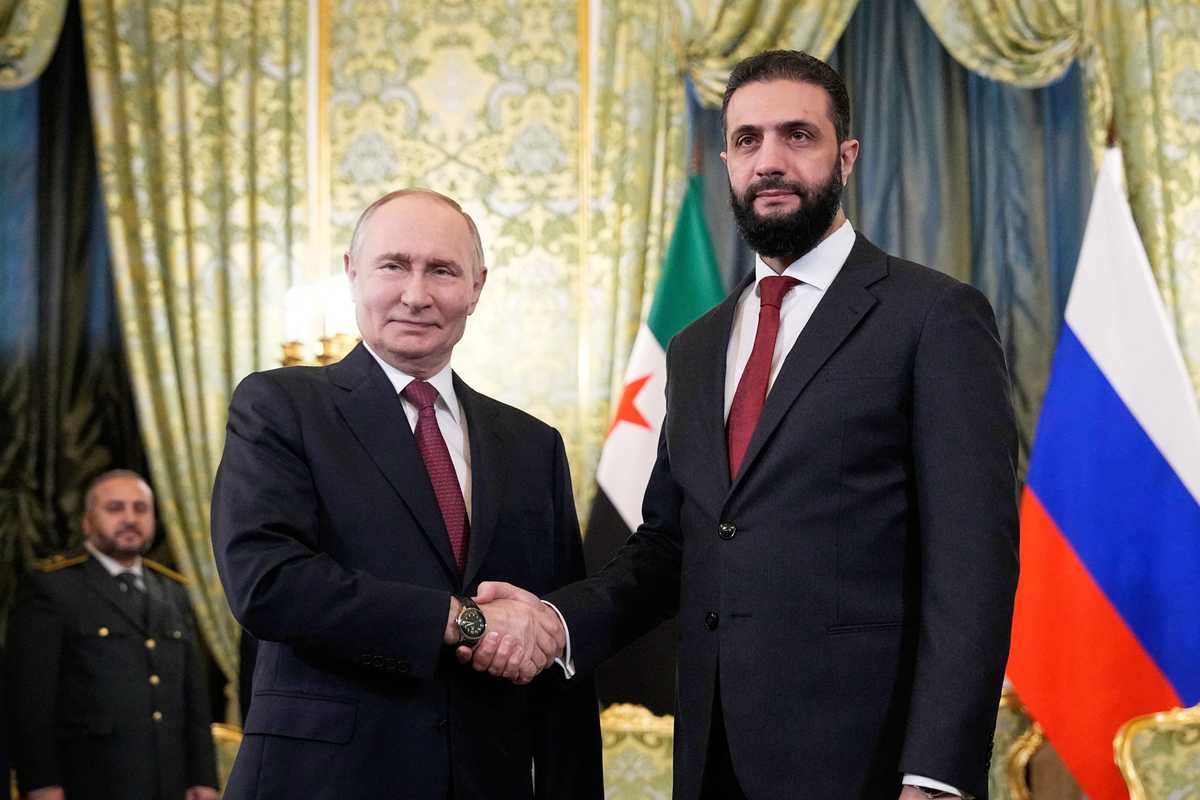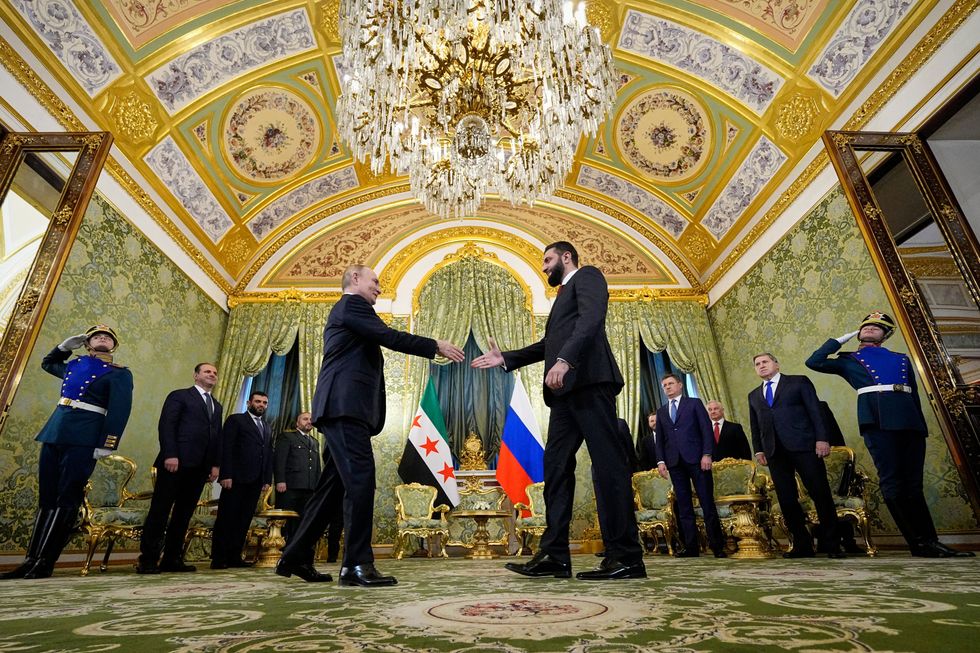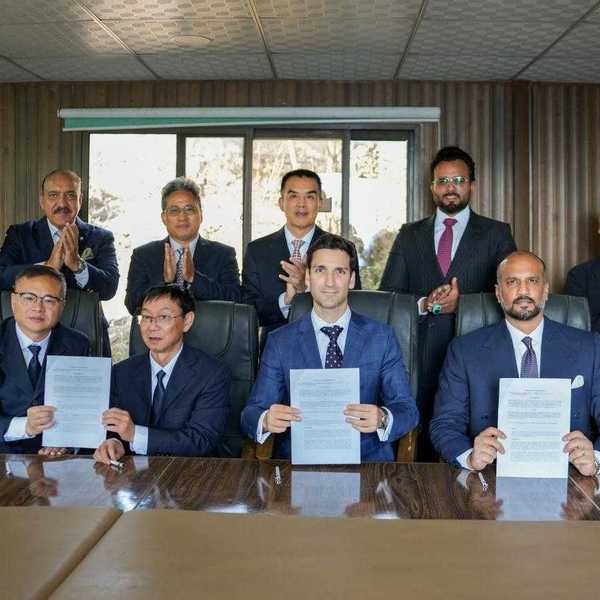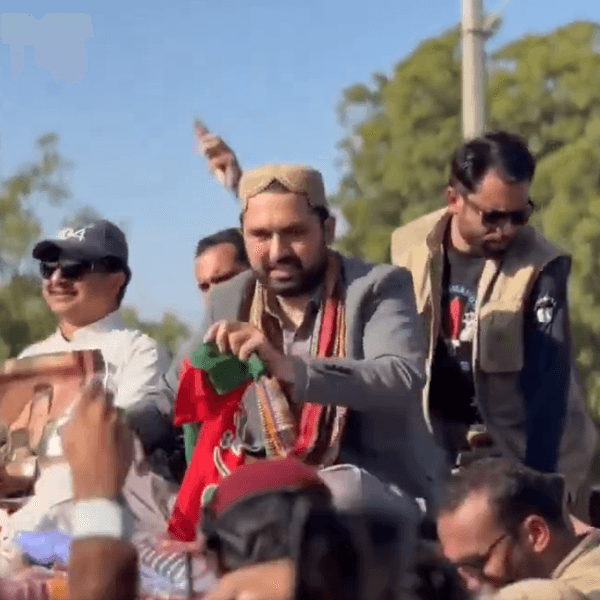Can Syria move on while Assad lives in Moscow?
For many Syrians, the question of Assad’s fate remains central to the country’s moral and political reckoning.

Sidrah Roghay
Senior Producer
Sidrah Roghay is a storyteller at heart, with over a decade of experience in newsrooms across Pakistan, the US, and Turkey

Russia's President Vladimir Putin shakes hands with Syria's President Ahmed al-Sharaa during a meeting at the Kremlin in Moscow, Russia, October 15, 2025
reuters
When Syria's leader Ahmed al-Sharaa met President Vladimir Putin in Moscow last week, the elephant in the room must have been unmistakable.
Will he ask Russia to hand over Bashar al-Assad, the man responsible for more than 200,000 civilian deaths in Syria since 2011, when the regime quelled mass protests with force?
War crimes during Assad’s rule led to the forced displacement of 6.8 million Syrians internally, with another 7 million seeking asylum abroad, according to the UN refugee agency.
That era turned Syria into one of the world’s worst humanitarian crises. The image of 2-year-old Aylan Kurdi’s body washed ashore on a Turkish beach still haunts global conscience years later.
Assad’s staunchest backer, Russia, remains his protector. Even after his ousting by Sharaa, he lives comfortably in exile in Moscow, just a few miles from the Kremlin.
Now, nearly a year after the end of Assad’s rule, the new president is walking a fine line — between seeking justice for his country’s past and securing its fragile future.
Two Syrian sources told Reuters that Sharaa plans to “formally request that Moscow hand over Assad to face trial over alleged crimes against Syrians.”
It’s a demand as symbolic as it is risky — one that Moscow is unlikely to accept, having sheltered Assad and his family since their flight from Damascus last year.

Moscow’s reaction has been predictable. Russian Foreign Minister Sergey Lavrov reiterated this week that Assad was granted refuge because his life “was under threat.”
But for many Syrians, the question of Assad’s fate remains central to the country’s moral and political reckoning.
“Assad’s exile is symbolically powerful. It keeps him out of domestic politics but reminds Syrians that justice is unfinished,” Haian Dukhan, a fellow at the Centre for Syrian Studies at the UK-based University of St Andrews, told Nukta.
“While Sharaa might raise the issue of extradition to satisfy public and international demands, Russia is unlikely to comply soon,” Dukhan said. “Handing Assad over would undermine Moscow’s credibility as a protector of its allies and remove one of its key bargaining chips with Damascus.”
Timing of visit
The Moscow visit comes just days after Syria held its first parliamentary elections since Assad’s fall — a tightly controlled process widely criticized for its poor representation of women and minorities.
According to official results, women won far fewer seats than expected, and Christian representation was limited to just two lawmakers.
Despite the criticism, Sharaa appears intent on consolidating legitimacy at home while rebalancing his country’s foreign ties.
Once a leading figure in Hayat Tahrir al-Sham (HTS) — the militant group that fought fierce battles against Assad’s Russian-backed forces — Sharaa now finds himself negotiating face-to-face with the very power that bombed his hometowns.
He is hoping to secure economic concessions from Moscow — including the resumption of wheat supplies on favorable terms and compensation for war damages — while pressing for Russian backing against Israeli demands for a wider demilitarized zone in southern Syria.
Syrian officials are seeking guarantees that Russia will not help rearm remnants of Assad's forces, a Syrian source said before the talks, according to Reuters. Sharaa is hoping that Russia might also help rebuild the Syrian army, the same source said.
Moscow’s shrinking leverage
Russia still sees Syria as a vital outpost in the Middle East, but its influence has undeniably waned by international isolation and economic strain following its war in Ukraine
“Russia retains leverage through its military presence, arms supply, and UN Security Council veto,” Dukhan said. “But its influence is shrinking as Damascus secures new financial and diplomatic support from Arab and Western partners. Moscow’s role is now one of many competing powers in Syria — giving it bargaining power, but no longer decisive control.”
For Sharaa, maintaining that balance is critical. Syria depends on Russian fuel, grain, and technology — but it also needs Western and Arab investment to rebuild cities and institutions shattered by 13 years of war.
“Domestically, Sharaa’s visit signals stability and continuity to Syria’s elite, showing that old alliances will not be abruptly abandoned,” Dukhan added. “Regionally, it reassures Israel and Arab states that Syria’s new leadership seeks balanced relations — keeping Russia as a security partner while reducing dependence on Tehran.”
For all the talk of reconstruction and diplomacy, Assad’s shadow looms large.
The Syrian Network for Human Rights (SNHR) — one of the country’s most prominent opposition groups — has repeatedly called for his extradition. Last month, the SNHR marked the tenth anniversary of Russia’s military intervention in Syria by calling on Moscow to “issue an official apology, pay compensation to the victims, and extradite Bashar al-Assad.”
For Sharaa, the real test is about balancing past demons with pragmatism in the present.







Comments
See what people are discussing